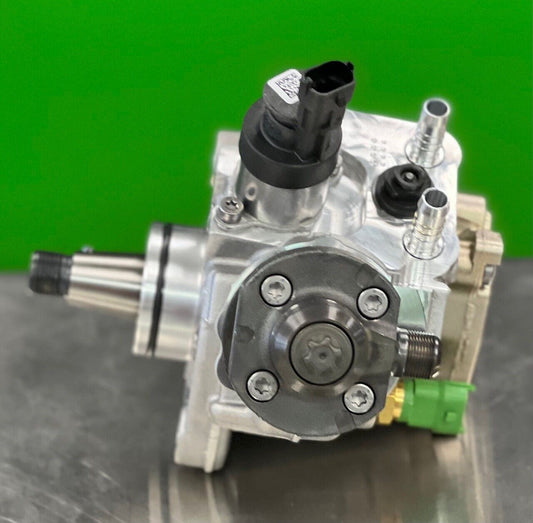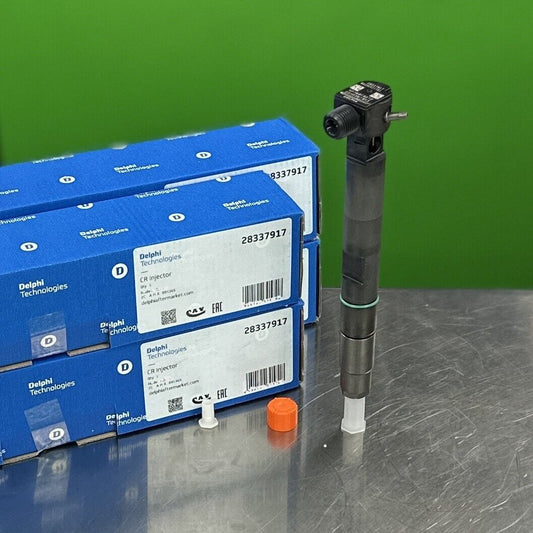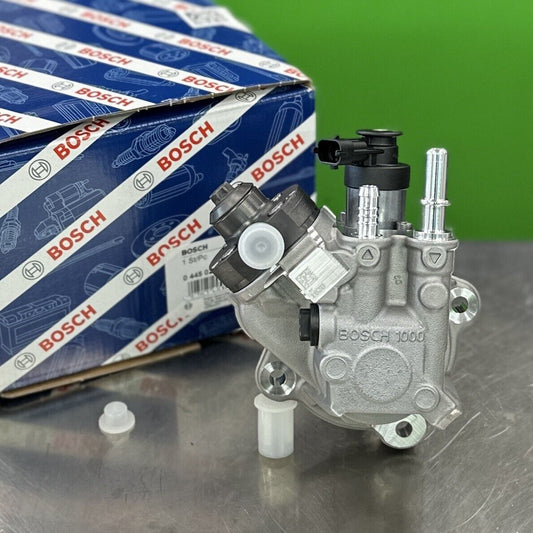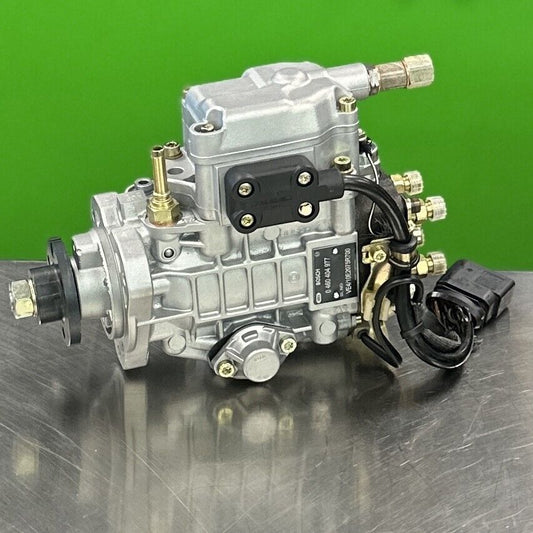The Surprising Truth About Fuel Injector Problems
When it comes to vehicle maintenance, one of the most surprising yet commonly overlooked issues is fuel injector problems. Despite their small size, fuel injectors play a crucial role in the performance of a car's engine. Let's dive into the surprising truth behind fuel injector issues that many drivers may not be aware of.
Imagine your car's fuel system as a well-orchestrated symphony, with each fuel injector acting as a musician playing its part. However, just like any orchestra, if one musician is out of tune, the entire performance can be affected. Similarly, when a fuel injector malfunctions, it can lead to a cascade of issues that impact your vehicle's overall performance.
One common misconception is that fuel injector problems only occur in older vehicles or high-mileage cars. In reality, even relatively new vehicles can experience fuel injector issues due to various factors such as poor fuel quality, lack of regular maintenance, or driving habits.
Moreover, fuel injector problems can manifest in unexpected ways, causing symptoms that may seem unrelated to the fuel system. From rough idling and engine misfires to decreased fuel efficiency and even strange odors from the exhaust, the signs of faulty fuel injectors can be subtle yet impactful.
As a driver, being able to identify these symptoms early on can save you from costly repairs down the road. By paying attention to your vehicle's performance and addressing any unusual behavior promptly, you can prevent minor fuel injector issues from escalating into major problems.
When faced with suspected fuel injector problems, diagnosing and repairing the issue promptly is crucial. Through proper diagnostic tools and techniques, mechanics can pinpoint the exact injector causing trouble and take the necessary steps to restore optimal performance.
Furthermore, preventing fuel injector problems through regular maintenance and proactive measures is key to ensuring the longevity of your vehicle's fuel system. From using high-quality fuel additives to scheduling routine inspections, taking care of your fuel injectors can go a long way in keeping your car running smoothly.
Causes of Fuel Injector Problems
When it comes to the surprising truth about fuel injector problems, understanding the causes is crucial. Fuel injectors play a vital role in the efficient functioning of a vehicle's engine, but various factors can lead to their malfunction. One of the primary causes of fuel injector problems is the accumulation of dirt and debris in the fuel system. Over time, these contaminants can clog the injectors, affecting their performance and leading to issues such as misfiring or poor fuel efficiency.
Another common cause of fuel injector problems is the use of low-quality or contaminated fuel. Poor quality fuel can contain impurities that can damage the injectors and hinder their ability to deliver the right amount of fuel to the engine. Additionally, fuel additives or treatments that are not compatible with the vehicle's fuel system can also contribute to injector issues.
Furthermore, fuel injector problems can arise due to electrical issues within the vehicle. Faulty wiring, connections, or sensors can disrupt the proper functioning of the injectors, causing them to malfunction. It is essential to ensure that the electrical components related to the fuel injectors are properly maintained and inspected regularly to prevent any potential issues.
In some cases, fuel injector problems can also be attributed to wear and tear over time. As vehicles age, the internal components of the injectors can degrade, leading to issues such as leaks or inconsistent fuel delivery. Regular maintenance and inspection of the fuel system can help identify any signs of wear and address them before they escalate into more significant problems.
Overall, understanding the various causes of fuel injector problems is essential for maintaining the optimal performance of a vehicle. By addressing these issues proactively and taking preventive measures, drivers can ensure that their fuel injectors function correctly and contribute to the overall efficiency and longevity of their vehicle.
Symptoms of Faulty Fuel Injectors
When it comes to the health of your vehicle, being able to recognize the symptoms of faulty fuel injectors is crucial. These small components play a big role in the performance of your car, and any issues with them can lead to a range of problems. So, what are the signs that your fuel injectors might be failing?
One of the most common symptoms of faulty fuel injectors is a noticeable decrease in fuel efficiency. If you find yourself visiting the gas station more frequently than usual, it could be a sign that your fuel injectors are not functioning properly. Additionally, you may experience rough idling or engine misfires, which can be attributed to issues with the fuel injectors.
Another telltale sign of faulty fuel injectors is a lack of power or acceleration in your vehicle. If you notice that your car is struggling to pick up speed or respond quickly when you press the gas pedal, it could be due to clogged or malfunctioning fuel injectors. In some cases, you may even detect a strong smell of gasoline, indicating that fuel is not being properly injected into the engine.
Furthermore, engine stalling or hesitation can also point to potential fuel injector problems. When the fuel injectors are not delivering the right amount of fuel to the engine, it can cause disruptions in the combustion process, leading to stalling or hesitation while driving. Additionally, you may experience rough starts or difficulty starting the engine, which can be linked to fuel injector issues.
To sum it up, being aware of the symptoms of faulty fuel injectors can save you time, money, and hassle in the long run. If you notice any of these signs in your vehicle, it's essential to address the issue promptly to prevent further damage and ensure optimal performance. Regular maintenance and inspection of your fuel injectors can help you avoid unexpected surprises on the road and keep your vehicle running smoothly.
Diagnosing and Repairing Fuel Injector Problems
When it comes to diagnosing and repairing fuel injector problems in vehicles, it is crucial to have a clear understanding of the signs and symptoms that indicate potential issues. One of the most common indicators of a faulty fuel injector is a decrease in fuel efficiency. If you notice that your vehicle is consuming more fuel than usual, it could be a sign that the fuel injectors are not functioning properly. Additionally, engine misfires, rough idling, or a noticeable decrease in performance can also point towards fuel injector issues.
To accurately diagnose fuel injector problems, a mechanic may perform a series of tests to determine the root cause of the issue. One common method is using a fuel pressure gauge to check the fuel pressure in the system. If the pressure is outside the recommended range, it could indicate a problem with the fuel injectors. Another diagnostic tool is a noid light, which is used to check the electrical pulse signal to the injectors. By analyzing these factors, the mechanic can pinpoint the exact cause of the problem and proceed with the necessary repairs.
Repairing fuel injector problems often involves cleaning or replacing the injectors, depending on the severity of the issue. In some cases, a simple cleaning process using specialized cleaning solutions can help remove any buildup or debris that is affecting the injector's performance. However, if the injectors are severely clogged or damaged, they may need to be replaced entirely to restore optimal functionality to the fuel system.
Regular maintenance and cleaning of fuel injectors can also help prevent potential problems in the future. By using high-quality fuel and additives that clean the injectors, you can ensure that they remain in good condition and continue to operate efficiently. Additionally, following the manufacturer's recommended maintenance schedule for your vehicle can help identify and address any issues with the fuel injectors before they escalate into more significant problems.
Preventive Measures for Fuel Injector Maintenance
When it comes to ensuring the smooth operation of your vehicle's fuel system, proactive maintenance is key. By taking preventive measures, you can avoid potential fuel injector problems and extend the lifespan of your car's engine. Let's delve into some effective strategies to keep your fuel injectors in top condition.
Regular Fuel System Cleaning:
One of the most crucial preventive measures is to schedule regular fuel system cleanings. Over time, deposits and contaminants can build up in the fuel injectors, leading to clogs and reduced efficiency. By using high-quality fuel system cleaners, you can prevent these issues and maintain optimal injector performance.
Use High-Quality Fuel:
The quality of fuel you use can significantly impact the health of your fuel injectors. Opt for reputable gas stations that offer clean and high-grade fuel. Low-quality fuel may contain impurities that can cause damage to the injectors over time. Investing in quality fuel is an investment in the longevity of your vehicle.
Regular Engine Inspections:
Regular engine inspections by a qualified mechanic are essential for detecting any potential fuel injector issues early on. Through diagnostic tests and visual inspections, any developing problems can be identified and addressed promptly. This proactive approach can save you from costly repairs down the line.
Monitor Fuel Efficiency:
Keep an eye on your vehicle's fuel efficiency as it can be a telltale sign of fuel injector problems. A sudden decrease in miles per gallon could indicate issues with the injectors. By monitoring your fuel economy, you can catch problems early and take action before they escalate.
Follow Manufacturer's Recommendations:
Adhering to the manufacturer's recommended maintenance schedule is crucial for the overall health of your vehicle, including the fuel injectors. Regular tune-ups, oil changes, and filter replacements can all contribute to the proper functioning of the fuel system. By following these guidelines, you can prevent potential injector issues.
By implementing these preventive measures, you can safeguard your vehicle against fuel injector problems and enjoy a smooth and efficient driving experience. Remember, a little proactive maintenance goes a long way in ensuring the longevity of your car's fuel system.
Frequently Asked Questions
-
What are the common causes of fuel injector problems?
Fuel injector issues can arise due to various reasons, including clogging from dirt or debris, electrical problems, fuel quality issues, and wear and tear over time. It's essential to address these factors to maintain optimal performance.
-
How can I identify if my vehicle has faulty fuel injectors?
Signs of faulty fuel injectors may include engine misfires, rough idling, decreased fuel efficiency, and a noticeable decrease in overall performance. If you notice any of these symptoms, it's advisable to have your fuel injectors inspected.
-
What is the process for diagnosing and repairing fuel injector problems?
Diagnosing fuel injector issues typically involves using diagnostic tools to assess injector performance and fuel system functionality. Repairs may include cleaning, replacing, or recalibrating the injectors to ensure proper fuel delivery and combustion.
-
How can I prevent fuel injector problems in my vehicle?
Preventive measures for fuel injector maintenance include using high-quality fuel, regular engine tune-ups, keeping the fuel system clean, and following the manufacturer's recommended maintenance schedule. These practices can help extend the lifespan of your fuel injectors.
-
Can fuel injector problems lead to other engine issues?
Yes, untreated fuel injector problems can potentially cause more significant engine issues, such as damaged spark plugs, reduced engine power, and even engine stalling. Addressing fuel injector issues promptly is crucial to avoid further damage.



